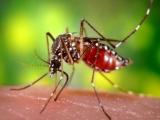Federal officials yesterday announced efforts to gather blood samples from people in the continental United States and Puerto Rico who are infected with Zika virus to help diagnostic test developers gauge how well the products perform.
In other developments, the number of cases in the US territories continues to climb, as are travel-related cases on the mainland, while internationally, affected countries and areas reporting serious complications stayed level.
Six-month project announced
The US Department of Health and Human Services (HHS) said the Office of the Assistant Secretary for Preparedness and Response (ASPR) will support the collection of blood samples from infected patients, given the urgent need to expand capacity for blood tests to detect Zika-specific immunoglobulin M (IgM). The tests are used to assess if someone who was potentially exposed to the virus was infected.
Richard Hatchett, MD, BARDA's acting director, said in the statement, "Accurate diagnostic tools are vital for health care providers and their patients to determine whether people have been infected with Zika, especially pregnant women and their partners."
In its statement, HHS said test developers have cited a lack of access to blood samples—needed for validating new tests—as a hurdle to development.
Under an ASPR-funded 6-month project totaling $692,000, Clinical Research Management, based in Hinckley, Ohio, will collect blood samples from patients with confirmed infections, in coordination with local, state, and federal health officials.
Latest US totals from the CDC
In other US Zika developments, the Centers for Disease Control and Prevention (CDC) said today the territories reporting local spread--Puerto Rico, American Samoa, and the US Virgin Islands—have reported 596 cases, most of them in Puerto Rico.
Zika infections have been reported in 8 more pregnant women in the US territories, raising that total to 56. One more potentially linked Guillain-Barre syndrome (GBS) case has been reported, lifting the number to five.
On the mainland, 426 infections in travelers have been reported, an increase of 38 from the previous week. Three more Zika infections were reported in pregnant women, putting that total at 36. Florida, New York, Texas, and California have the most cases.
Little change on global front
In its regular weekly update on Zika virus and its complications today, the World Health Organization (WHO) signaled that not much has changed over the past week, except for Canada's report of its first sexual transmission case. That report brought the number of countries reporting such cases to nine.
Over the past week no new countries reported local transmission, while the number of countries or territories reporting microcephaly cases stayed at six, and the number reporting potentially linked Guillain-Barre syndrome (GBS) cases remained at 13.
See also:
Apr 27 HHS press release
Apr 28 CDC update
Apr 28 WHO Zika situation report





















